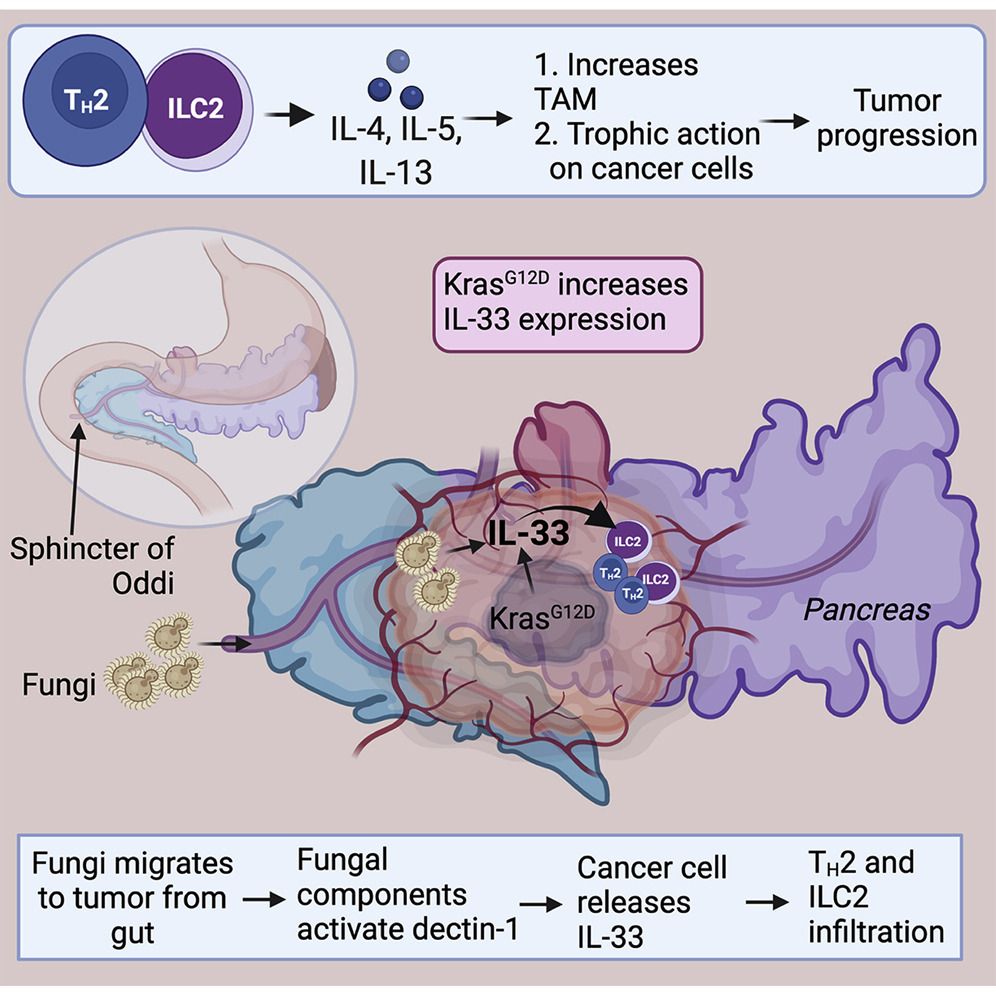The fungal microbiome regulates the pancreatic cancer tumor microenvironment. Gut microbes can interact with the host and modulate disease pathogenesis and response to therapy.
We and others have found that microbes can colonize the pancreas and play a role in PDAC tumorigenesis and progression. Specifically, we showed that the mycobiome present in the gut lumen migrates to the pancreas via the sphincter of Oddi.
The intratumor fungi then activate a toll-like receptor (TLR) mediated signaling cascade that leads to the secretion of a damage associated molecular pattern (DAMP) molecule, IL-33 into the tumor microenvironment.
The secreted IL-33 recruits and expands pro-tumorigenic immunocytes innate lymphoid cell 2 (ILC2), TH2 and eosinophil. These immunocytes upon activation by IL-33 secretes effector cytokines such as IL-4, IL-13 and IL-4 which creates a tumor permissive microenvironment.
Further, we discovered that oncogenic KrasG12D induces IL-33 expression and that genetic deletion of IL-33 or anti-fungal treatment each leads to robust PDAC tumor regression.
This mechanism of cooperative interactions of intratumor fungi with cancer cells and priming type 2 immune responses to accelerate tumor progression identifies potential therapeutic strategies for PDAC.
Contact the Dey Lab
Email: Prasenjit.Dey@RoswellPark.org
Phone: 716-845-1300, x5269
Office location: Center for Genetics & Pharmacology (CGP) L5-307
Lab Location: Center for Genetics & Pharmacology (CGP) L15-115
Department of Immunology
Roswell Park Comprehensive Cancer Center
Elm and Carlton Streets
Buffalo, NY 14263
